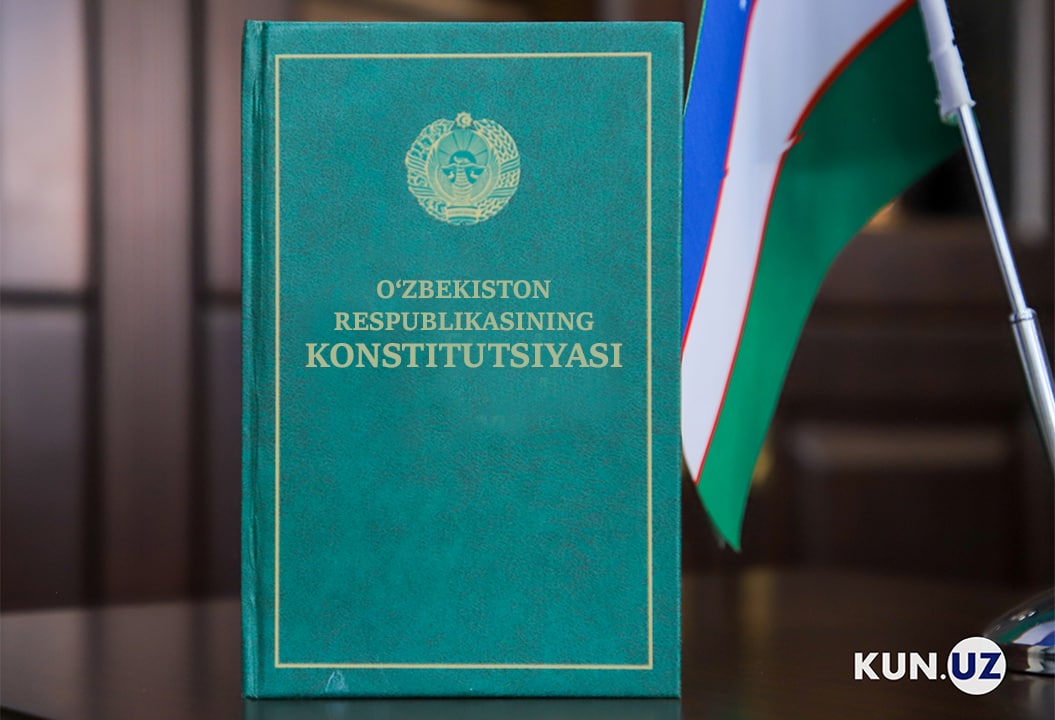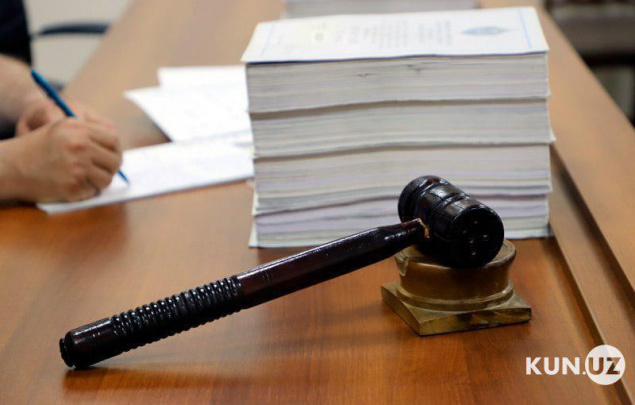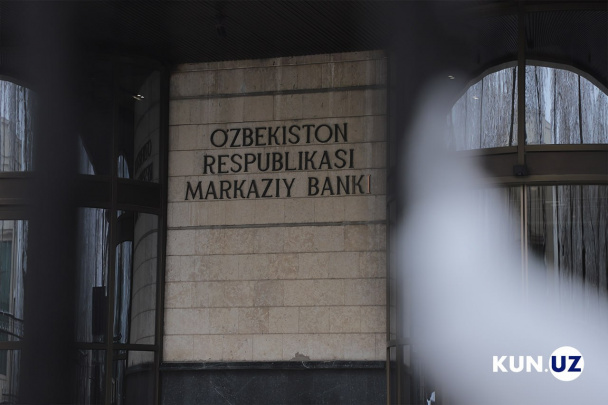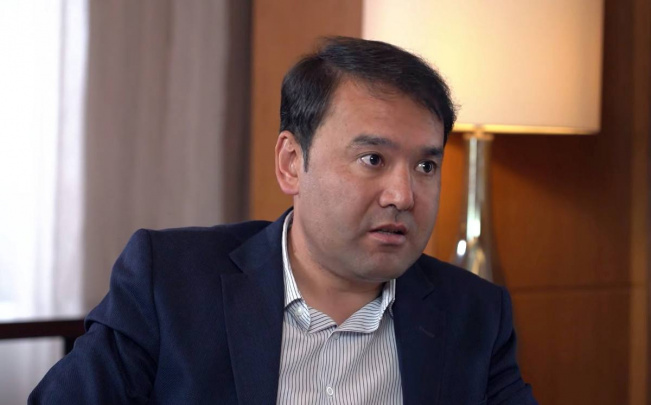“As the Constitutional Court is passive, citizens do not believe that laws work” — Rasul Kusherbaev

Фото: KUN.UZ
MP Rasul Kusherbayev positively assessed the changes made to Article 30 of the Constitution, that is, the rights of a person regarding documents and information related to him are clearly defined. However, in his opinion, if the attitude towards the main law of the country does not change, if the implementation of its norms is not ensured, then there will be no benefit from the introduced change.
Kusherbayev told about this in an interview with UzReport TV. Kun.uz cites theses from the views expressed by the lawmaker in the interview.
What will change?
- It is difficult for me to say something about whether Article 30 of the Constitution needs to be changed or not, because I have not personally come across this issue. But I can say that the supplements that are being offered now are actually very useful for people.
At this point, the question arises as to how far this article of our current Constitution has worked. It is true that the current article 30 states that citizens can get information about their rights from officials, responsible agencies, and get acquainted with documents and materials related to their rights and interests. Officials are obliged to provide such information.
How well did this article work in practice? Despite the fact that such a norm is established in the Constitution, in some decisions of our agencies and government, the non-presentation of documents and information related to the rights of citizens has been interpreted as being related to state secrets and national security. Sometimes an official did not provide the requested information because he did not want it.
Citizens did not even know who to complain to, if the place where complaints could be made was the Constitutional Court, citizens did not have the right to appeal there. This right was recently granted to Uzbeks. We hope that if the proposed changes come into force, the regulatory legal acts that are contrary to the norms of the Constitution, and the restrictions limiting the access to information on the rights of citizens will be abolished.
The amendment to Article 30 of the updated Constitution clearly states the rights of a person regarding documents and information concerning him. According to it, state bodies, self-government bodies of citizens, public associations, organizations and officials must provide everyone with the opportunity to familiarize themselves with legislative documents, as well as documents, decisions and other materials related to their rights and legal interests.
In addition, it is defined as a right for Uzbeks to familiarize themselves with the information collected about them in state bodies, self-government bodies of citizens, public associations, and organizations. At the same time, the Constitution confirms that citizens have the right to demand the correction of this information, as well as the destruction of information collected illegally or without legal grounds, if untrue information has been collected about them by some state agencies.
“It will be possible to demand compensation for the damage caused”
- We have a number of agencies that make many people afraid when they hear their names. They say that their employees monitor citizens, and collect information only in secret ways. Why do people get scared when they hear the names of these agencies? Because there are cases where they collect information about any person illegally. Information provided by these agencies is often not contested.
Citizens are not provided with any information about whether the information collected about them is true or not. If these collected data were later placed in some databases related to the provision of public services, and if they were incorrect, the citizen could face difficulties. Until now, there was no possibility to even think about such databases and the information in them.
In the updated Constitution, citizens are given the right to request such information, so that they can receive information about themselves from any office, organization, and official, if they have collected false information about them or if this information has been collected illegally, and this right directly serves as a basis for causing other legal consequences. That is, if a citizen suffers damage as a result of the collection of incorrect information about him, he will certainly have the opportunity to compensate for the damage caused to him, to demand compensation in court, based on this provision stipulated in the Constitution.
“Privacy must be ensured”
- Such a norm existed even if it was interpreted in a different way, and there is, of course, the question of what will happen if it does not work as soon as the Constitution is updated. This should be controlled by the Constitutional Court. Moreover, the functioning of this norm depends on the political will of civil servants and officials. If they don’t want to accept the change being made to the Constitution and follow it, we can’t do anything. That is, there will be no change in society.
If officials say the same thing and do the same thing, if they show determination that they will work without deviating from the requirements of the new Constitution, if they do not show hypocrisy, as is observed now, the citizens will feel great changes. For example, this article itself contains the huge issue of citizen data collection, which is of concern to people around the world.
Collecting personal data is one of the activities that form the basis for determining the daily behavior of citizens. Let’s say that a citizen goes to a bank to get a loan, to some office to use a public service, in the same order to a hospital and to some law enforcement agencies. All of these agencies have a database of citizens to one degree or another. For example, hospitals store the history of his illnesses, internal affairs agencies store personal information about offenses and crimes of individuals and other types of personal information. Agencies collecting personal data must ensure their privacy, prevent them from being disseminated in various ways or falling into the hands of other citizens.
Imagine how much trouble it will cause to citizens if incorrect information is stored in these databases? If it is related to the bank, he may not be able to get a loan. When it comes to health, the spread of such information can affect morale, and it can become a talking point among the public. If there are fines, the deviation may be restricted. I have had appeals on similar issues. Sometimes, there are citizens who are mistakenly included in the list of diseases that people avoid and hate when they hear their name, and there are cases where they suffered moral and material damage as a result of the information about it spreading among the public.
An event that was recently spread on social networks can serve as an example. That is, a citizen is required to prove that he is alive. As a result of entering the information as "deceased" in some database, the citizen has to prove that he is alive, and this prevents him from exercising his rights as a citizen.
“While updating the Constitution, it is necessary to abandon personnel who do not follow it”
- When will the implementation of the changes to the Constitution be fully ensured? When the right of a citizen is defined in the main law of the country, it must be recognized implicitly. Even if there is no such norm in laws, departmental documents and instructions, this cannot be a reason for not recognizing the right of a citizen. Unfortunately, we are having problems with the execution system. Our executive officers work based on their own departmental guidelines, not the Constitution and laws. They do not recognize anything else.
Even experts with such a worldview should change their minds that the Constitution is at the beginning of everything, I must follow it, and if my instruction contradicts the Constitution, I should act according to the basic law and should follow it. Our constitutional court must constantly punish the agencies that work against the Basic Law. Due to the fact that the Constitutional Court is passive, our citizens do not believe that the Constitution and laws work in Uzbekistan.
It can be seen that the rights of citizens are sufficiently protected in our current Constitution. But what is the problem? The problem is that most of our officials themselves do not follow the Constitution. They do not even want it. Worst of all, the government sometimes adopts documents and protocols that do not meet the constitutional requirements. A citizen faced with this will be surprised and helpless. The Constitution has a different norm, and the government documents are completely different. It can be seen that the minutes of a simple government meeting have more influence in practice than the Constitution.
In this sense, the amendment to Article 30 of the Constitution is a very popular reform that serves the interests of the majority. I fully support it. I am in favor of this change and will vote for it. But what scares and worries me is how well this norm will work. If the attitude to the Constitution does not change, as it has been for many years, if compliance with the requirements specified in it is neglected, we will achieve nothing.
We must respect the Constitution, on the basis of which obligations and rights must be observed. Civil servants should be an example in this. Society is ready for change. Our people want the Constitution to be updated and the norms in it to work in practice, but I believe that certain categories of officials who do not fulfill the requirements of these norms are against it. For this reason, along with updating the Constitution, we will have to purge state bodies of personnel who do not follow it.
Simply updating the country’s Basic Law will not change the situation unless it is ensured that it actually works. As long as the personnel who do not follow the Constitution continue to work, these changes will make no sense.
Related News

16:20 / 22.12.2025
Uzbekistan moves to livestream Constitutional Court hearings and expand digital access

14:30 / 02.12.2025
Uzbekistan to roll out new platform for managing consent to personal data processing

13:50 / 11.11.2025
Apple Pay and Google Pay closer to launch in Uzbekistan as government plans to reform personal data law

13:08 / 21.04.2025



